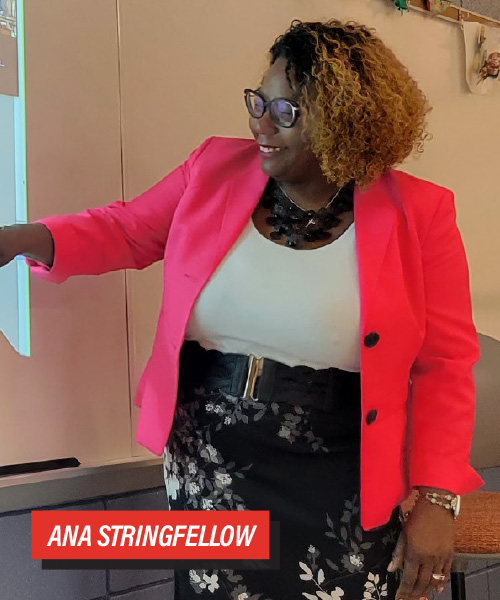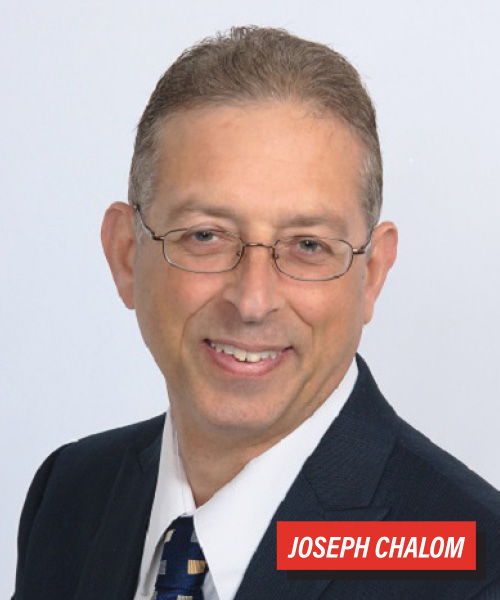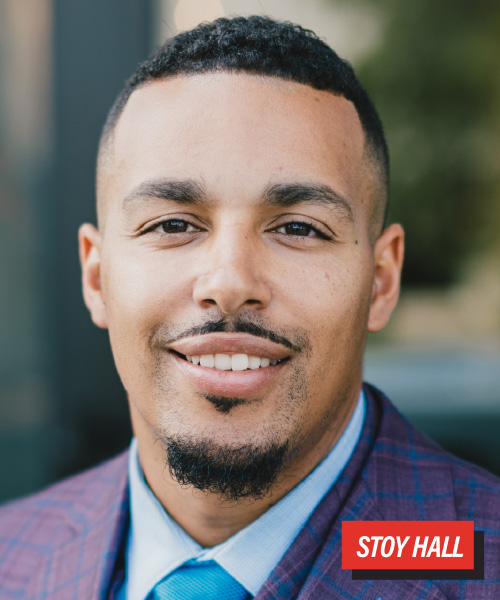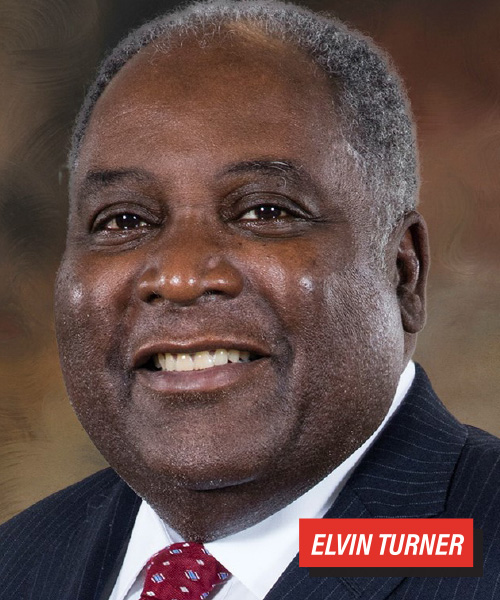A Rising Tide

Ana Stringfellow wants to keep young people and their families from making some of the same mistakes she made when she was fresh out of high school and new to the workforce.
Stringfellow is a financial advisor with Edward Jones in St. Louis. But she was a recent high school graduate, beginning her first “real” job at Ford Motor Co., when her mother gave her some advice that puzzled her.
“She said to me, ‘Go to Labor Relations and start putting money in your 401(k).’ I said, ‘OK, well, what is a 401(k)?’ And she said, ‘Don’t worry about it; just do what I told you to do.’ She couldn’t articulate what a 401(k) is, but she knew I needed to do it.”
Stringfellow is one example of how financial professionals give of their time and knowledge to help provide people in their communities with the financial literacy knowledge they need to lift themselves to financial independence.
She speaks of her own experience as a young adult in the working world as her inspiration for helping others learn more about money.
The Ford plant where she worked for 12 years closed down, and she received what she called “a substantial buyout” in addition to the money she had in her 401(k).
“Because I had seen Warren Buffett on TV a few times, I thought I was an investment guru,” she laughed. “I invested the money, but I made every mistake imaginable. I took some of the money and put it into something I didn’t know, which turned out to be a real estate investment trust, which I now know was really stupid. And I lost a lot of money. I said, ‘If God ever puts me in a position to have that much money at one time again, I’d never make the same mistake twice.’”
She eventually became a financial advisor and set out to share her knowledge.
Stringfellow volunteers to teach financial literacy classes at St. Louis Community College and in four high schools in the city. She also is one of several financial advisors who work with the 314 Project, partnering with the Urban League to teach money management skills to students and parents.
“One financial advisor works with the students, and another financial advisor works with the adults,” she explained. “We teach them about financial literacy, and then we bring students and adults together at the end so that they can help hold one another accountable. It’s not only about giving the information to the students or giving the information to the parents — it’s giving the information to the family so they can change the trajectory of their life.”
In her sessions, she covers budgeting, paying for expenses and “the differences between wants and needs.”
“We not only discuss how you make a budget, but we also go through the budget and ask, ‘These things that you’re purchasing — is that a want or a need? Is this something you can’t live without?’” she said. “I want to make them understand that something that may be a want, maybe they can scale it back. We help them figure out how much is going out? How much are you bringing in? How can we adjust those figures so that they come closer to one another?”
She uses name-brand sneakers as a way of differentiating between wants and needs.
“I know that students feel they need them. And I know they need to cover their feet with something. But it doesn’t necessarily have to be with a $150 pair of shoes.”
Stringfellow said she covers different methods of money management, such as the avalanche method of paying off debt or the 50/20/30 rule that states 50% of your income should go toward bills, 20% should go toward discretionary spending and 30% should go into savings.
She estimates she has worked with about 25 families and 60 individuals in her financial literacy education sessions.
“I know that there are people who will have a better life trajectory for themselves or their children or even their grandchildren because of their interactions with me,” she said.
A ‘million-dollar’ discussion
Joseph Chalom goes into his local schools — not to lecture about financial literacy but to begin a discussion aimed at empowering students to take financial control over their lives.
Chalom is president of Retirement Council Inc. in Coral Springs, Fla., and he volunteers with Invest, which describes itself as an insurance education program for future leaders.
“I’m really trying to spark engagement,” he said. “I also want the students to engage in a conversation with their parents about what they are or aren’t doing.”
Chalom said he recognizes that the high schoolers he works with “are at the age where a lot of them think that adults — especially their parents — don’t know anything.
“But when this information comes from a third party, they think, ‘Maybe my mother or father does know something.’ And maybe the student could bring something back to the home that might help empower their parents to take a second look at their own financial planning or their own legacy plan. If we don’t focus our energies toward students who are willing to soak in this information and create brighter financial futures for themselves and generations to come, we’ve got a real problem.”
Chalom said sometimes the students surprise him with their questions. He recalled a recent session in which a discussion about beneficiaries led to a lively discussion on life insurance.
“We spent several minutes talking about what a beneficiary is — a primary beneficiary, a contingent beneficiary — and I asked, ‘What if this happened?’ and we did a little bit of role-play. I said I have a million-dollar life insurance policy, and I’m making particular students the primary beneficiary, and as soon as I said ‘million-dollar,’ everyone started asking questions.
Could there be more than one beneficiary? Could there be an ultimate beneficiary? Could you leave the money to charity? I was excited about the conversation because that indicated to me there was genuine interest in learning more about life insurance.”
He also discusses using credit responsibly and prioritizing needs over wants.
One issue that Chalom said he wants to impress upon the students is “that the concept of planning and goal setting is scalable. It’s transferable to everything in your life, everything from testing, preparing for a test to education planning to planning for retirement. It’s the same concept. You can’t wait to the last minute to do it. You have to plan ahead, and you have to set goals, and you have to prioritize those goals.”
Chalom said that when he was younger, “no one shared the information that I’m sharing with others.
“If they had, it would have saved me some grief. I learned this the hard way. And if people can’t take what they know and help empower others, then I think that’s pretty sad.”
Answering the question ‘Am I good?’
Stoy Hall spends much of his volunteer time partnering with various nonprofit organizations in the Des Moines, Iowa, community to promote a greater understanding of financial issues. He said his goal is “to have an open dialogue, an open conversation from tip to tail, whatever they want to learn.
“I want to direct people and have deep conversations with people. And I find that in the majority of those conversations, no matter what I speak about, I bring up a money mindset.”
Hall is founder and CEO of Black Mammoth in West Des Moines, Iowa. He also has a weekly newsletter and a regular podcast in which he discusses having a money mindset.
“In my conversations, I ask everyone, ‘What is your relationship with money? Is it negative? Is it positive?’”
Money is tied with emotions, Hall said.
“The reason we don’t learn about money or the reason we don’t have money, all of that will stem down to some type of an emotional decision at some point, whether that’s trauma from your childhood, trauma from work, trauma from being an adult, etc.,” he said. “I have found those people who are successful have been able to turn that negative relationship with money into a positive, and that has allowed them to reach the goals that they want to achieve. It has nothing to do with a dollar figure. It has everything to do with what’s in their mind. That’s the overall theme of everything I talk about. And then I’ll get into the nitty-gritties within.”
Hall said when he talks to people about financial literacy, there is one question they want him to answer.
“All people want to know is, ‘Am I good? Am I on the right path?’
“They want to understand what they’re doing with their dollar every day, and every time they get a paycheck. Is there a path and a structure to it? Or are they out here, just willy-nilly throwing money around? And then after you answer that for them, you can start to talk to them about things like 401(k)s, a Roth IRA, how to sign up for health insurance.”
Hall said the most difficult thing about discussing financial literacy is getting people to open up to an uncomfortable conversation about money. “At that point, people will break down, they’ll cry, they’ll bring out emotions and trauma that are deeply rooted. And that all has to happen before they can get into the nitty-gritty of products and details and concepts.”
He said he believes financial literacy education is crucial to helping bridge the economic divide in the U.S.
“The wealthy have the means to get that education, but they also have had something passed down to them — whether that’s knowledge or money or whatever. The first-generation wealth builders, myself included, never had that. We didn’t learn from our parents, and we got nothing from school. Then by the time we get out on our own, we think it’s too expensive to hire a planner because we don’t have any assets or we have $100,000 in student loans.”
Hall said those who need financial literacy education often find they must fight for it.
“I believe that fight isn’t about the knowledge of products or concepts. The fight is deeply rooted in their mental health. And no one really talks about that as much. But if we can help fix that issue, or at least improve it, everything else kind of opens up for itself.”
Helping people take charge
Financial literacy education isn’t limited to young people. It’s for people at every stage of their lives.
That’s the message Elvin Turner wants to convey. Turner is president of Turner Consulting in Hartford, Conn., and he is the founder, president and CEO of Take Charge Total Wellness Foundation.
After four years as a pilot program of the Society of Financial Service Professionals, the Take Charge Total Wellness Foundation was launched in 2020. Its mission is to increase the financial and health literacy and well-being of multiple generations of people in minority and other underserved communities.
The foundation brings together professionals from multiple disciplines to work alongside people in their communities to improve the financial and health literacy of those who are underserved. These professionals conduct community forums as well as online discussions.
“We work in communities where people don’t typically see insurance agents, investment advisors, lawyers, accountants — they’re not really part of that network. And I go into these communities, primarily in churches, and hold financial literacy sessions on a range of topics that are important to the people who live there,” Turner said.
Turner travels about 20 times a year to places such as Philadelphia; Waterbury, Conn., and Oakland, Calif., to speak to community members as part of his work with the foundation.
The foundation has a multigenerational focus, he said. “We believe that if each family member across generations adopts sound financial and health disciplines, the fortunes of entire families can be transformed. This enhances individual and collective quality of life and profoundly impacts the family legacy.”
Turner said the foundation reaches families and individuals who are in one of four distinctive life stages.
1. Teens seeking to attend college. Turner said the program teaches teens that attending a “name” school is less important than whether the school is a good fit for the student.
2. Young adults starting jobs and buying homes. The program teaches that the pursuit of material goods, travel and work/life balance is important: but young adults also must build an inventory of skills and wisdom that’s transferable to the jobs emerging in a turbulent economy.
3. Middle-ages people and their families and individuals in the highest earning years of their lives. The program teaches them to create a financial and insurance safety net that will keep them whole through the inevitable challenges of life.
4. Senior citizens. The program teaches them about security with dignity, using accumulated resources and relationships to continue their lifestyles into their retirement years.
No matter the life stage of someone who seeks financial knowledge, people of all ages have a few challenges in common, Turner said. The first challenge is lack of trust.
“Part of what I do with these seminars is build trust between the people in these communities and people in the financial services industry,” he said. “That’s a huge barrier for many people and it’s the reason why they never will seek help. So, I focus on creating a level of trust, and I believe it’s important to treat people respectfully.”
The fear of not having enough money to be able to plan is another challenge, Turner said.
“People ask, ‘Do I have enough to start the plan?’ The answer is, ‘Yes, you do.’ You may not be one of the superrich, but you have many of the same issues that they do. So getting people to engage with you because they know they have enough to start to plan is a challenge.”
The third challenge, Turner said, is helping people answer the question, how much is enough?
“Many people don’t plan because they can never get to that number,” he said. “So they focus on accumulating, and they think, when I get enough, I’ll start planning. But it doesn’t happen.
“Our goal is to help people overcome these challenges and not be afraid to plan.”
Susan Rupe is managing editor for InsuranceNewsNet. She formerly served as communications director for an insurance agents' association and was an award-winning newspaper reporter and editor. Contact her at [email protected].









Protector of the Castle — With Brian Carden
Acing annuities during Financial Literacy Awareness Month
Advisor News
- Global economic growth will moderate as the labor force shrinks
- Estate planning during the great wealth transfer
- Main Street families need trusted financial guidance to navigate the new Trump Accounts
- Are the holidays a good time to have a long-term care conversation?
- Gen X unsure whether they can catch up with retirement saving
More Advisor NewsAnnuity News
- Pension buy-in sales up, PRT sales down in mixed Q3, LIMRA reports
- Life insurance and annuities: Reassuring ‘tired’ clients in 2026
- Insurance Compact warns NAIC some annuity designs ‘quite complicated’
- MONTGOMERY COUNTY MAN SENTENCED TO FEDERAL PRISON FOR DEFRAUDING ELDERLY VICTIMS OF HUNDREDS OF THOUSANDS OF DOLLARS
- New York Life continues to close in on Athene; annuity sales up 50%
More Annuity NewsHealth/Employee Benefits News
Life Insurance News
- Legals for December, 12 2025
- AM Best Affirms Credit Ratings of Manulife Financial Corporation and Its Subsidiaries
- AM Best Upgrades Credit Ratings of Starr International Insurance (Thailand) Public Company Limited
- PROMOTING INNOVATION WHILE GUARDING AGAINST FINANCIAL STABILITY RISKS SPEECH BY RANDY KROSZNER
- Life insurance and annuities: Reassuring ‘tired’ clients in 2026
More Life Insurance News